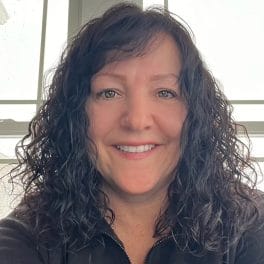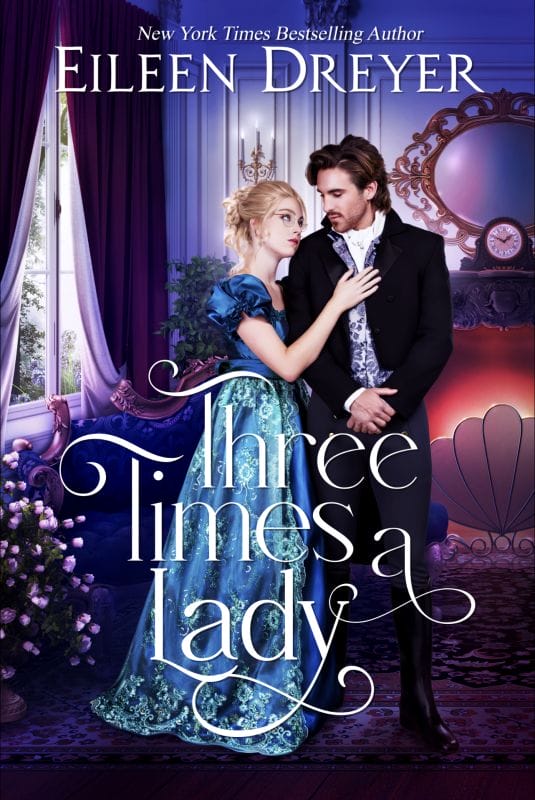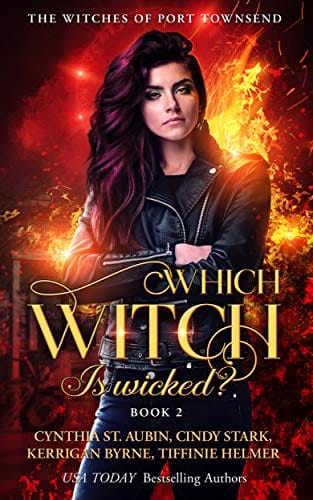
Last time we met with our group of savvy writers, they told us a little bit about how they made time for writing and turned their dreams of being authors into a reality. This time we’re diving a little more into their processes and how they handle that frightful foe, writer’s block.
One inquisitive reader asked: How has your writing process changed over time?
Every author is different when it comes to this, of course, but it seems you’ll often find writers who are of two different camps. With authors like Kari Lee Harmon, their process has remained very similar over the years, with a few tweaks here and there. She simply says:
I write a lot faster than I used to. I plot a lot more as well.
Similarly, Jill Barnett has spent her career really honing in on what works for her:
I have been writing since 1986, and have learned a lot. What comes from my pen is pretty solid. I do write a lot of the book longhand. I switched to pen and paper about 15 + years ago. I write more with pen and paper. Pilot Frixon Gel Fine Pt Pens in black and Clairfontaine 5×8 lined spiral notebooks.
It might be surprising to some of you, especially in this day and age, that someone might choose to work analog like this instead of digitally, but Jill is definitely not the only one who does it. There’s something very tactile about creativity that can be unlocked for many this way.
In the other camp, some authors will tell you that each book is its own beast. According to Willa Blair:
It changes with every book. Sigh.
So, if this isn’t your first time writing a book, and you feel like you’re doing everything just right but you’re still feeling stalled and uninspired, look at this as your cue to mix things up. Try longhand like Jill. Experiment with plotting when you used to be more of a pantser like Kari, or the other way around. Listen to music. Write outside. Do whatever you need to do to give yourself that spark. Writing is not a one size fits all kind of craft and we think that’s really beautiful.
Our next question is one many authors dread: What are your thoughts on Writer’s Block? And how do you move past it when it hits?
This, we know, can be a very personal battle for a lot of writers. It’s certainly never easy when you can’t do that one thing you yearn to, not to mention the added pressures for many that this thing is their livelihood. So, we’re very honored that Jill Barnett shared some of her experience with us:
I have been plagued with blocks for 3 decades. They happen throughout a book. Every book after about my 4th. Sometimes, it is incredibly painful and seemingly insurmountable. Writers who dismiss it as a fake thing, and say hurtful, ugly things like “they just want to shop for shoes instead of write,” are lucky to not suffer this. It is painful to sit staring at a computer screen for long hours, unable to write more than a sentence, gripped by fear and failure and mentally frozen, unable to make your mind go into the creative zone.
So, if you’ve been feeling this way, know that you’re definitely not alone. However, also know that there are ways out of it. Jill says:
I have a few things I use once I can set aside my emotions, my fears. Most of these remedies involve writing on pads by dissecting the character, the conflict, winnowing it down to just that one scene, what needs to happen in the scene and/or “listing possibles” (my favorite trick) where I take a yellow note pad and number each line and then write everything and anything that can possibly happen. Kidnapped by aliens, in a carriage accident, finds a lost dog, etc. listing all the things that can happen next. Free form thought. Sometimes I find the answer at #5 and sometimes at #75. But I always find the door into the scene.
Not all authors are plagued with such huge blocks, but all authors meet with some mental barriers from time to time. Kari Lee Harmon says:
I think writing is rewriting, and as long as I just keep putting words on the page (even if they’re crap), it always sparks ideas. Then I can go back and revise accordingly. When I’m unsure of a direction, I do find it helpful to get up and do something else for a minute. Focusing too hard on a problem doesn’t work for me. When I distract my brain, the answer appears when I least expect it. That’s why I keep a notebook and pen in several spots around my house 😉 Also, I keep a notebook by my bed. We often dream about whatever we watch or read right before bed, so if I’m stuck, I read the last scene I wrote before I go to sleep. It’s crazy the dreams I have. I usually wake up with a cool new twist or the answer to whatever I was stuck on.
As Kari points out, blocks normally occur when we’re standing in our own way. We try to force ourselves past those signs that something is wrong. You might be overwhelmed or burnt out. You might even be plugging away, trying to make your original plot work when your characters are poking at you constantly to tell you you’ve gone the wrong way and the only way to get back is to rewrite several days worth of work. Take it from us, don’t let yourself get to that point. As Willa Blair says:
When I need a break, I take one, but I don’t feel like I’m being kept from writing, just that I need a change of focus for a while.
Similarly, Jaclyn Reding says:
I find that reading a really good book, one I’ve read before that is on my keeper shelf, is a great way to get myself past a stumbling block. It just sort of frees my mind.
So, if you feel like something is off while you’re writing, but you also feel obligated to keep going, know that it’s time to take a break. It might not feel like it’s the right choice, especially with something time-dependent like NaNoWriMo, but giving yourself a moment to breathe and think clearly through what you’ve done so far might save you from a lot of future frustration.
Have you found any tricks for getting past barriers in your own writing? Share them down in the comments and maybe we can help inspire each other to break through those mental blocks throughout NaNoWriMo and beyond.

New York Times Bestselling Author Jill Barnett is a master storyteller known for her beautifully-written love stories rich with humor, emotion, and poignancy. In addition to the critical acclaim and numerous awards she has received, her books have been named Best of the Year, earned starred reviews and have been published in 23 languages and appeared on numerous bestseller lists. She lives in the PNW with her family.

Kari Lee Townsend is a National Bestselling Author of mysteries & a tween superhero series. She also writes romance and women’s fiction as Kari Lee Harmon. With a background in English education, she’s now a full-time writer, wife to her own superhero, mom of three sons, one darling diva, one daughter-in-law & two lovable fur babies. These days you’ll find her walking her dogs or hard at work on her next story, living a blessed life.
 Willa Blair is an award-wining Amazon and Barnes & Noble #1 bestselling author of Scottish historical, light paranormal and contemporary romance filled with men in kilts, psi talents, and plenty of spice. Her books have won numerous accolades, including the Marlene, the Merritt, National Readers’ Choice Award Finalist, Reader’s Crown finalist, InD’Tale Magazine’s RONE Award Honorable Mention, and NightOwl Reviews Top Picks. She loves scouting new settings for books, and thinks being an author is the best job she’s ever had.
Willa Blair is an award-wining Amazon and Barnes & Noble #1 bestselling author of Scottish historical, light paranormal and contemporary romance filled with men in kilts, psi talents, and plenty of spice. Her books have won numerous accolades, including the Marlene, the Merritt, National Readers’ Choice Award Finalist, Reader’s Crown finalist, InD’Tale Magazine’s RONE Award Honorable Mention, and NightOwl Reviews Top Picks. She loves scouting new settings for books, and thinks being an author is the best job she’s ever had.

Jaclyn Reding’s award-winning, bestselling historical and contemporary romance novels have been translated into nearly a dozen languages. A National Readers’ Choice Awards finalist, and Romance Writers of America RITA Award nominee, she is the proud, proud mom of two grown sons, and willing minion to an elderly cairn terrier and a tuxedo cat. Home is with her family in New England, in an antique farmhouse that she suspects is held together purely by old wallpaper and cobwebs. A lifelong equestrian, she spends her free time in the saddle, going over plotlines and character arcs with her confidant and toughest critic, a very opinionated retired racehorse named Brunello.










0 Comments